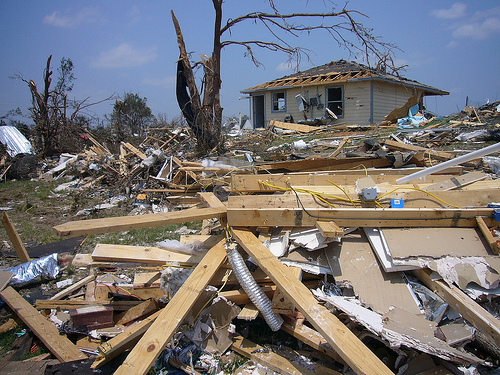Home Insurance for Newbies
So, it’s finally happened. You bought your first house, and you’re ready to make your way into the adult world. All you need now are the keys, and you’ll be a full-fledged homeowner, just like you’ve always dreamt! But, before you move on to a life of 50 hour work weeks, early mornings, lazy Saturday afternoons and cocktail parties, there is the matter of homeowner’s insurance that needs to be addressed first. Unfortunately, homeowner’s insurance is a lot more in-depth than it seems, and you may have some trouble grasping it at first; fortunately, I’m here to give you a bit of a headstart. Here are some useful tips to make sure you get through your first time buying homeowner’s insurance unscathed.
Homeowner’s Insurance Does Not just Cover Your Home
For first time homeowners, it’s oftentimes a shock to find out that homeowner’s insurance isn’t just for your house. In fact, there are 6 different coverage types — from property damage coverage all the way to medical expenses and personal assets coverage — that are included within the umbrella term “home insurance”, and all of them need to be addressed. For instance, do you have any expensive jewelry or high-tech electronics? Then you might need to get higher Coverage C protection which covers personal property. Do you have a pool house or any type of building that’s not connected to the main property? Then Coverage B is extremely important. Overall, Coverage A is definitely the most important section of home insurance, but you cannot forget about B through F; here’s a good guide that goes more in-depth into what home-insurance covers.


Home destroyed by tornado in Granbury, TX by State Farm, on Flickr. This work is licensed under a Creative Commons Attribution 3.0 Unported License.
Watch Out for “Extra Coverage”
Though homeowner’s insurance, such as home insurance in Roseville CA, oftentimes covers what I just outlined above, many companies will try to bundle other types of insurance — such as warranty insurance, travel insurance, or even payment protection insurance — which you just might not need. These “extra coverage” options oftentimes artificially increase the rates on your homeowner’s insurance, even if you don’t actually want them. And, even if you do, you can find these insurance options elsewhere for much less money. Don’t be fooled into taking this extra coverage, and make sure you know the difference between these options and the Coverage B-F options covered above; it may save you a lot of money in the end.
Answer All Insurer’s Questions Accurately
With many online applications, fudging your answers a bit is not all that bad. Yeah, you might not get a completely accurate estimate, but close is close enough, and you might actually end up helping yourself. This is certainly not the case when applying for homeowner’s insurance. If you lie on your application, or aren’t completely accurate, your policy could be cancelled by your insurer, and you may be rejected on future applications. Even worse, if you somehow get through the application process without being caught, your home may wind up underinsured, causing any future claims to be not fully paid out, or even rejected. With this in mind, you absolutely need to make sure you answer all questions on your homeowner’s insurance application as truthfully and as accurately as possible. Your financial future is counting on it.
Shop Around
Just remember that not all insurance plans are the same, so you really need to look around for the best option. If you can’t figure out what you want, or you aren’t sure what you need, contract expert help on the issue, and don’t buy until you are absolutely sure. Just know that choosing your homeowner’s insurance is one of the most important events of your financial future, so take it as seriously as possible.
